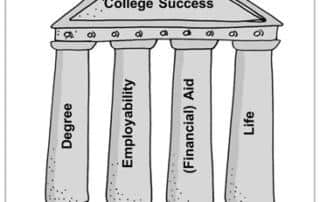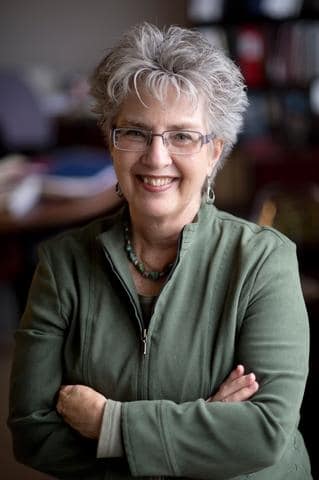

The following post was written by Standards for Excellence Licensed Consultant Arshad Merchant and is part of our “Ten Years of Advancing Excellence” blog series, celebrating ten years of the Standards for Excellence Licensed Consultant program. Arshad Merchant recently founded Boost Social Sector Consulting to help nonprofit and other socially-minded ventures address critical challenges and pursue greater good. Drawing on 20 years in consulting, Arshad brings substantial experience in strategy, program improvement and organizational development. Arshad Merchant became a Standards for Excellence Licensed Consultant in 2015. Applications for the 2016 Licensed Consultant Training program will be accepted through July 1.
T
his post, originally titled “A Simple Method to Improve College Graduation Rates,” first appeared in the Stanford Social Innovation Review in September 2014.
David Borgal and Greg Johnson faced a challenge. Their Boston-area organization, Bottom Line, helped low-income, first-generation students get into college and graduate. Dave as founder and director of operations, and Greg as executive director saw hundreds of students entering college each year with help from Bottom Line. But not enough of them were graduating. And while the six-year graduation rate of Bottom Line’s participants at 73 percent was well above the national norm of 57 percent (based on data from the National Center for Educational Statistics), Dave and Greg firmly believed the rate could be higher. With this thought in mind, Dave and Greg asked Wellspring Consulting to help Bottom Line increase the graduation rates of its students.
As we began our investigation, we learned about Bottom Line’s Counselors, who were spending time with 475 college students across 15 campuses, meeting one-on-one or with small groups to provide encouragement and guidance. Bottom Line considered this approach to be a core tool for achieving successful graduation rates. However, the approach used by the Counselors was haphazard, drawing primarily upon their own experience and intuition to determine how to support students. Bottom Line had no systematic understanding of how Counselors should spend their time to yield the highest graduation rates.
T
o attack the problem, we employed an approach called Process Thinking, a powerful way to determine how daily activities can be performed to maximize the ultimate goals of a nonprofit organization. Based on the methods of Process Thinking, we began by understanding the needs of the beneficiary of Bottom Line’s services—in this case, the needs of the students. By systematically interviewing the Bottom Line staff who worked directly with students, we uncovered the four most important areas where students needed help to graduate. These were:
-
Staying on track to graduate—which meant selecting a suitable major, understanding what requirements they must fulfill to graduate, and using strategies and support to improve their academic performance
-
Building their employability—through securing part-time jobs, writing a resume, and defining a desired career path
-
Maintaining sufficient financial aid—by renewing their scholarships, staying current on scholarship payments, and making smart financial decisions
-
Managing life—by staying connected with people who cared, maintaining a positive attitude, and resolving problems that might challenge their ability to graduate
Next, we assessed how Bottom Line counselors were spending their time. We found that the majority of counselors’ hours were spent meeting with students who were well-organized and motivated. On the other hand, at-risk students often missed meetings and were reticent to engage with Bottom Line’s counselors. Counselors with the best of intentions would too often overlook the students most in need. And without a method to prioritize their time, they weren’t focusing on those who needed them most.
To address this problem, we started by creating a simple mnemonic for the four dimensions of graduation success, which we called DEAL, where each letter stood for the following:
-
Degree (academic performance, on track to graduate)
-
Employability
-
(access to financial) Aid
-
Life (emotional support)
Next, we worked with Bottom Line to create indicators for each of these four dimensions of graduation success. Students would be ranked on these indicators, using a color-coded scale where green meant “on track to graduate,” yellow meant “facing some difficulty,” and red meant “at significant risk of not graduating.”
At the beginning of school, all students started green—presumed to be on track to graduate—and the counselor’s goal was to keep them green. As the school year progressed, counselors and other staff would regularly update student rankings in a database and tracking system that produced a scorecard for each student. Counselors then used these scorecards to determine how and with whom they should spend their time. As a result of this simple approach, Bottom Line’s counselors were finally able to focus on the students who needed the most help to graduate.
DEAL also helped Bottom Line identify areas where extra support was needed beyond what counselors could provide. One such area was in helping students prepare for careers after college. As a result, Bottom Line instituted a new career program. As Dave Borgal said, “DEAL highlighted that employability upon graduation mattered, which caused us to design a program to accomplish that.”
Because DEAL is a simple yet powerful way to align the organization around its central goals, Bottom Line uses DEAL as a key part of its formal training program for counselors. And, DEAL has been instrumental in fundraising. Mike Wasserman, Bottom Line’s former director of development who now leads the Massachusetts offices, said, “Before DEAL, we would say, ‘We help students get through college,’ and ‘We do a lot.’ Now we can show the rubric, a sample intervention, and the toolkits. Our stakeholders can more easily understand the range, scope, and nature of services we provide students.”
With the implementation of DEAL, predicted graduation rates of Bottom Line’s students have risen to 85 percent. Process Thinking, when executed well, enables nonprofits to focus their daily activities where results will be the greatest, accelerate fulfillment of their goals, and ultimately increase their value to society.



